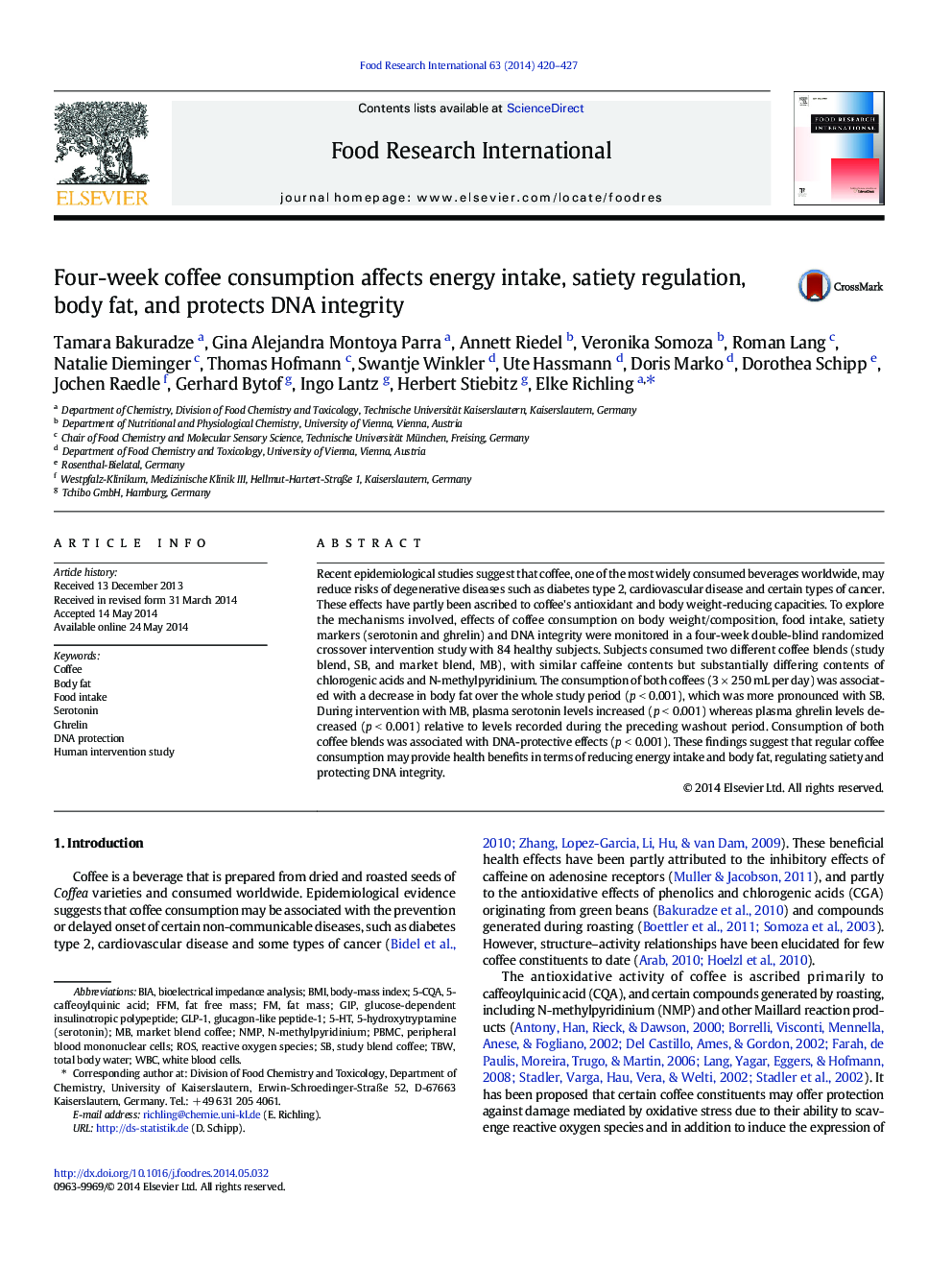| Article ID | Journal | Published Year | Pages | File Type |
|---|---|---|---|---|
| 4561625 | Food Research International | 2014 | 8 Pages |
•A randomized cross-over study with healthy volunteers with two different coffees•Influences of coffee on body weight/composition, food intake and satiety markers•Energy and food intakes and body fat were reduced by coffee consumption.•Results showed coffee-associated regulation on satiety markers.•Both coffees showed DNA protective effects.
Recent epidemiological studies suggest that coffee, one of the most widely consumed beverages worldwide, may reduce risks of degenerative diseases such as diabetes type 2, cardiovascular disease and certain types of cancer. These effects have partly been ascribed to coffee's antioxidant and body weight-reducing capacities. To explore the mechanisms involved, effects of coffee consumption on body weight/composition, food intake, satiety markers (serotonin and ghrelin) and DNA integrity were monitored in a four-week double-blind randomized crossover intervention study with 84 healthy subjects. Subjects consumed two different coffee blends (study blend, SB, and market blend, MB), with similar caffeine contents but substantially differing contents of chlorogenic acids and N-methylpyridinium. The consumption of both coffees (3 × 250 mL per day) was associated with a decrease in body fat over the whole study period (p < 0.001), which was more pronounced with SB. During intervention with MB, plasma serotonin levels increased (p < 0.001) whereas plasma ghrelin levels decreased (p < 0.001) relative to levels recorded during the preceding washout period. Consumption of both coffee blends was associated with DNA-protective effects (p < 0.001). These findings suggest that regular coffee consumption may provide health benefits in terms of reducing energy intake and body fat, regulating satiety and protecting DNA integrity.
